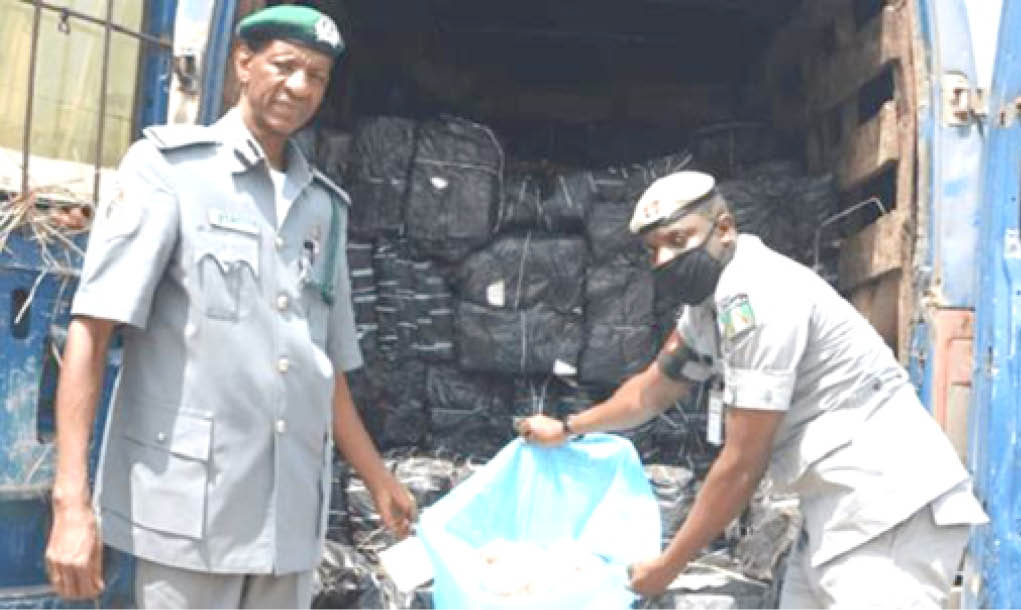Amidst the growing devastating impact of climate change on the Nigerian environment, conservation efforts are being threatened by many factors, especially the trafficking of wildlife.
There are concerns that the high pressure on Nigerian wildlife may further endanger some of the exotic wildlife species that are on the verge of going into extinction.
- ‘Global Terrorism Index rating for Nigeria, morale booster for troops’
- WHO plans summit to improve Nigeria’s primary healthcare sector
The World Bank estimates the illicit trade at $7.8 billion to $10 billion a year, making wildlife crime the fourth most lucrative illegal business after narcotics, human trafficking and weapons.
An investigation by Nigeria’s Premium Times and Mongabay has found evidence of systematic failure by Nigerian law enforcement and the judicial system to hold wildlife poachers and traffickers accountable.
Analysis of official wildlife crimes data by the media organisations, supported by numerous interviews with prosecutors, environmental campaigners and traders at wildlife markets in Lagos, Cross River, Abuja, Ogun and Bauchi states, found a near-total reliance on minor out-of-court settlements in trafficking cases.
Despite numerous high-profile multimillion-dollar trafficking busts at Nigeria’s ports since 2010, no one has faced jail term for trafficking of wildlife.
A week ago, the Kebbi Area Command of the Nigeria Customs Service (NCS), intercepted about 1,390 sacks of donkey meat worth N42 million at Yauri Junction of the state.

The Controller of the Area Command, Comptroller Joseph Attah, while addressing journalists in Birnin Kebbi last week, said the meat was seized because donkeys were part of the endangered species that were prohibited from being killed.
According to him, the driver of the truck and owner of the goods had been arrested and they would soon be charged to court, adding that the meat would be buried.
“Kebbi Area Command, while on routine patrol, intercepted a trailer with Registration Number ARG 323 XA loaded with donkey meat. The driver and one other occupant of the vehicle were immediately arrested and brought to the command’s headquarters with the offending item.
“Physical examination of the truck revealed that it was loaded with 1,390 sacks of donkey meat with a Duty Paid Value of N42,534,400.
“Illegal trade on endangered species such as donkeys is a contravention of Section 63 (b) of CEMA CAP C.45 LFN 2004,” he said.
Also, early last month, the National Environmental Standards and Regulations Enforcement Agency (NESREA) rescued a lion cub from wildlife traffickers in Abuja, the Federal Capital Territory (FCT).
According to a statement issued by the agency, a combined team from NESREA, the Nigeria Police Force, and the National Park Service acted on a tip-off and rescued the cub and arrested the suspects as they tried to sell off the animal for N6 million.
Speaking on behalf of the Director-General of NESREA, Prof Aliyu Jauro, the Director of Environmental Quality Control, Mr. Ayuba Jacob, said the operation was carried out because the animal was among the endangered species listed in the extant wildlife laws including International Conventions to which Nigeria is a signatory.
“Lions, like other endangered species are prohibited from illegal possession and open sale both locally and internationally under different conventions and regulations.
“Nigeria is a signatory to the Convention on International Trade in Endangered Species of Wild Fauna and Flora (CITES). We have the National Environmental (Protection of Endangered Species in International Trade) Regulation 2011 and the Endangered Species (Control of International Trade and Traffic) (Amendment) Act, 2016.
“This is a criminal offence. Such acts bring disgrace to Nigeria in the International Community if not curtailed. We always carry out sensitization exercises on topical environmental issues, and we enlighten hunters on endangered species,” he said.
He warned citizens to desist from environmental crimes as the agency would continue its war against perpetrators, saying, “People should know that there are animals and plants that are conserved so they don’t go into extinction.”
According to a United Nations Office on Drugs and Crime (UNODC)’s 2020 World Wildlife Crime Report, pangolins, forest elephants and other endangered species, are traded both domestically and internationally.
“Animals are hunted for their bushmeat and body parts, such as pangolin scales and elephant ivory tusks. The country’s deforestation has also led to a further decrease in endangered animals.
“Nigeria is not only a source of wildlife products but also a major transit country. There appears to be geographic consolidation of trafficking routes across several markets, with Nigeria emerging as a key source/transit country for many shipments of protected species and products,” part of the report read.
The report stated that in 2019 alone, at least 51 tons of pangolin scales seized globally originated from Nigerian ports, compared to only two tons in 2015. More than half of all seizures of pangolin scales worldwide could be traced back to Nigeria in 2019.
Data also proposes an increasing role of Nigeria in the illicit ivory trade. Though there’s been a global decline in trafficking in ivory since 2011, Nigeria has been identified as a major trading hub evidenced in the growing number of incidents recorded over time.
“The January 2021 seizure at the Apapa Ports by the Nigeria Customs Service of a 20 feet container conveying the remains of various endangered species further highlights and buttresses these findings in the WWCR 2020.
“The container included 2,772 pieces of elephant tusks of different shapes weighing about 4,752kg; 162 sacks of pangolin scales weighing 5,329kg; 5kg of rhino horns, dried and fresh animal bones; 103kg of skulls suspected to be of lions and other wild cats; and 76 pieces of timber (semi-processed and processed),” the report further said.
UNODC, through its Global Programme for Combating Wildlife and Forest Crime and the Corruption and Economic Crime branch, has, meanwhile, developed practical tools to support wildlife management authorities in the country.
The tools are meant to strengthen the authorities’ capacity to lessen the risk of corruption that prevents them from achieving their mandate to protect wildlife
Thus, at the request of the Nigerian government, UNODC rendered support for interventions to tackle wildlife crime, including the conduct of a corruption risk assessment (CRA) for the wildlife and forestry sectors.
In March 2021, UNODC in conjunction with the Federal Ministry of Environment, NESREA and ICPC undertook the first workshop in a series of corruption risk assessment and management activities.
A second workshop was held in April of the same year which focused on building capacity for the Nigeria Customs Service.

 Join Daily Trust WhatsApp Community For Quick Access To News and Happenings Around You.
Join Daily Trust WhatsApp Community For Quick Access To News and Happenings Around You.


